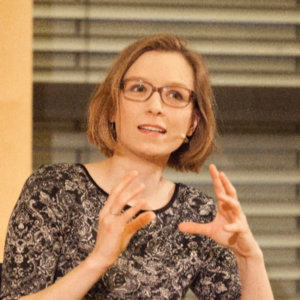
As part of the activities of the Philosophy of Work Network, Lisa Herzog (UGroeningen) will offer a presentation entitled: “Labor Markets without Market Wages”.
The activities of the Philosophy of Work Network are open to researchers and graduate students with research interests in this area. Please write to the organizers, Denise Celentano (denise.celentano@umontreal.ca) and Pablo Gilabert (pablo.gilabert@concordia.ca), to receive the zoom link.
Abstract
Should wages be determined by market forces? This paper argues against this view, based on consideration of the kind of good that labor is and what it means to “trade” it. Two arguments brought forward in favor of market wages, the desert argument and the information argument, are not only mutually incompatible but also both not convincing. The first founders on the problem of complementarities in value creation. The second fails not only because of endogeneity problems, but also because of systemic market failures in labor markets. But is it possible to give up labor markets without endangering freedom of occupation or risking problematic degrees of inefficiency? This can be achieved by understanding labor markets as matching markets, comparable to those for donor organs: what matters is creating good matches, but the price mechanism is not central for this. From this perspective, various existing institutions, such as minimum wages and collective bargaining, can be reinterpreted as “approximative institutions” that move labor markets in a more just direction.

Annabelle Level (Science Po, Paris) will be presenting her work. More information to come.
The lecture will be followed by a discussion chaired by Charles Blattberg (UdeM).
To participate via Zoom, click here.

Call for Abstracts
The role of human emotions in value judgments has been a longstanding matter of controversy. For example, philosophers have tended to agree that emotions can present obstacles to morality by interfering with practical reasoning, by encouraging us to be partial, and by driving impulsive action. At the same time, emotions play an important role in many contemporary (meta-)ethical theories, which claim that emotions can help to guide practical reasoning, make special obligations salient, and provide reasons for action. As Christine Tappolet notes in Philosophy of Emotion: A Contemporary Introduction (Routledge, 2022), an increasing awareness of the role of emotions in our lives has led to a significant rise in philosophical interest in the emotions.
The Centre for research in ethics (CRE) is pleased to announce the call for abstracts for the Montreal Workshop on Emotions and Normativity, to be held on October 10th and 11th, 2024. This workshop aims to explore the multifaceted relationship between normativity and emotions, inviting scholars and practitioners from diverse disciplines to contribute their insights and research findings.
Confirmed speakers: Justin D’Arms (Ohio State University), Christine Tappolet (University of Montreal), Alexandra King (Simon Frasier University), Laura Silva (Laval University)
The Montreal Workshop on Emotions and Normativity aims to discuss recent work on fundamental questions at the intersections of the philosophy of normativity, (meta-)ethics, and the philosophy of emotion. We especially welcome submissions including, but not limited to, the following topics:
– Reactive attitudes and moral responsibility
– Emotions and reasons/rationality
– Normative assessments of emotions
– Emotions and moral virtue
– Emotions and partiality
– Moral Sentimentalism, Emotivism, and Subjectivism
– Emotions and moral development
– Emotions and aesthetic normativity
Submission Guidelines:
– Abstracts should be no more than 300 words.
– Please include your name, affiliation, contact information, and a brief bio (50 words).
– Submissions should be sent by: July 1st, 2024.
– Successful applicants will be notified by: July 30th, 2024.
– Abstracts must be sent to: montreal.emotions.normativity@gmail.com.
Join us for stimulating discussions, insightful presentations, and networking opportunities at the Montreal Workshop on Emotions and Normativity. We look forward to your contributions to this intellectually enriching event.
For any inquiries and further information, please contact: Alex Carty (alexander.carty@mail.mcgill.ca)
Organization: Alex Carty (McGill), Melissa Hernandez (UdeM) and Guillaume Soucy (UQÀM), with the support of the Centre de recherche en éthique (CRÉ), the Groupe de recherche interuniversitaire sur la normativité (GRIN) and the Canadian Journal of Philosophy.



